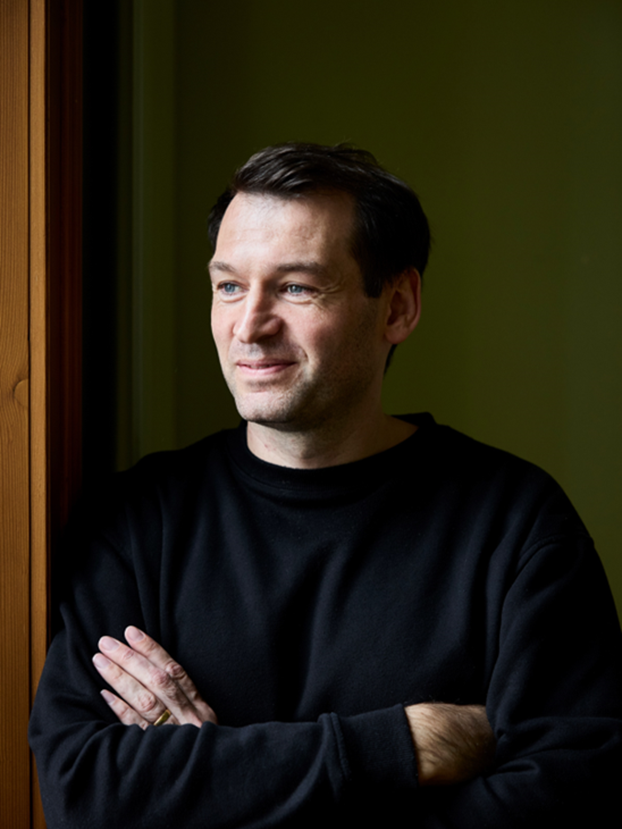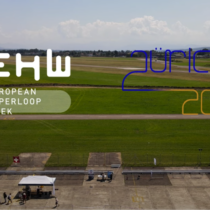ETH Zurich Future Maker – Noé Brasier
September 12, 2024How many of you are fascinated by the latest advances in research while struggling to understand their implications for our future? If so, then – like me – you also belong to the tribe of the scientifically curious. In that case, I would like to invite you to join me on a voyage of discovery as I ask various ETH Zurich researchers about what they do and why it matters. On behalf of our tribe, I will inquire about their latest findings and how they might impact our future. So, buckle up and accompany me to meet ETH Zurich future makers…

Have you ever got uncomfortable about sweating too much? Have you ever wondered what this seemingly uneventful fluid might reveal about the state of your mental or physical health? Well, allow me to introduce you to Noé Brasier – a researcher, physician and lecturer in the Department of Health Science and Technology at ETH Zurich who has dedicated his professional life to exploring sweat and the potential it holds for enhanced medical diagnostics.
Noé’s research area: Translational Health Monitoring
In simple terms, I tend to think of Noé’s scientific magic as translating sweat sensor research from the advances in the lab into concrete interventions relevant for practicing doctors. Can you actually imagine all the information that your body fluids such as sweat, breath or saliva might contain about you? And once such information is collected, can you envision the potential it might have in helping us better understand and improve our future physical and cognitive functions?
I think that we all intuitively know that sweat is important. Among other things, it regulates our body temperature and helps to keep our skin – the largest organ of our body – healthy. But what is really fascinating to me about sweat is the amount of information it carries in the form of biomarkers (for example, chloride or cortisol) that can be collected by noninvasive wearable sensors. Currently, various such biomarkers can be detected and measured, yet their importance or impact is not fully understood. And that is where translational researchers like Noé come into the picture. Noé’s research area aims to facilitate a more comprehensive understanding of the information contained in such biomarkers that could eventually help us prevent, diagnose, monitor, and hopefully treat diseases and health impairments in a more effective manner. Already today, sweat analysis can help diagnose cystic fibrosis of newborn babies. Looking into the future, will sweat be able to tell us more about other potential disorders that we might be suffering from? Will this knowledge then increase our chances of effectively monitoring and treating such disorders?

But how about 2040? Will Noé’s research area still be relevant to our lives?
If Noé and his peers are successful in their research endeavors, by 2040, we could see a lot of sweat sensors being worn on different parts of our bodies, constantly measuring and assessing sweat-related biomarkers (while transmitting this information into selected personal or medical databases to which individuals and their doctors have real-time access). This might sound relatively uncomplicated to an outsider like me, but it would be a large step in clinical diagnostics and care.
What is more, could you imagine a future scenario in which any form of medical treatment was customizable to your individual biology? Where the treatment’s efficacy would be monitored through body fluid sensors that you carry every day? In 2040, could you maybe enter a doctor’s office, receive your medication, and monitor how this medication impacts your key functions or biomarkers in real-time? And when such medication was no longer performing as desired, could it be immediately adapted or discontinued as both you and your doctor would have the real-time information obtained from your body fluid sensor analysis enabling you to take that decision?
For better or worse, our body fluids might turn out to be invaluable informational treasure troves in the years to come. Not only might they help us better understand our health, but they could also assist us in customizing our future medical treatments based on individual needs. Our health is one of our most important assets – and this is unlikely to change by 2040 or beyond. In this context, researchers like Noé might be key in helping us better understand and preserve this asset as we look ahead. And that is why, ladies and gentlemen, Noé Brasier is an ETH Zurich Future Maker!




